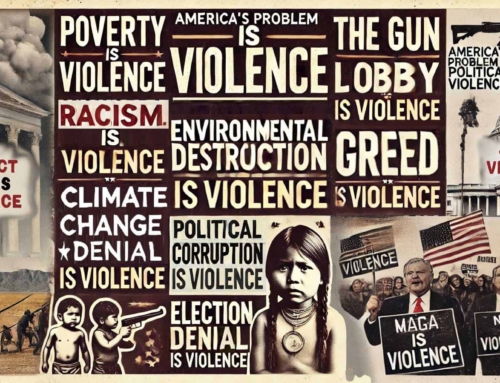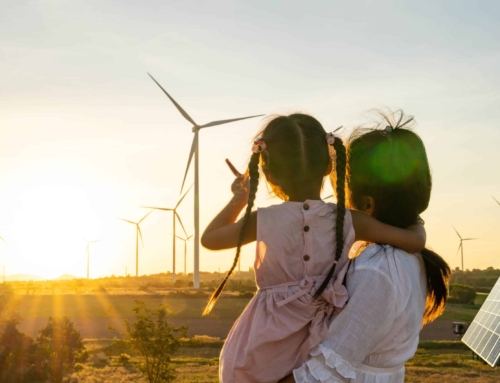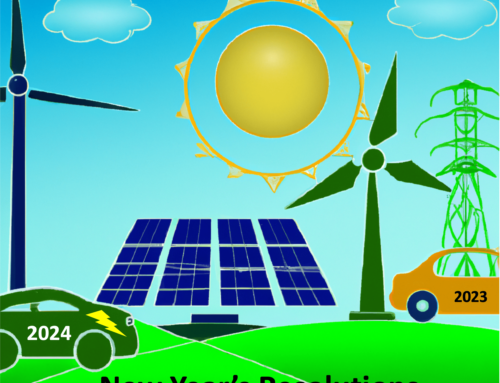“You need to lighten up a little.”
“I’m not angry.”
“Yes, you are.”
“No! I’m not!”
This is a conversation I observed between my daughter and her 10 year-old. It reminds me that no one likes to be told what to do. Not kids, and not adults.
Telling people what to do is a particular problem for the climate movement. (This post excepted of course!) As climate communicators, we want to get people to act quickly. We can see solutions to the problems of the climate crisis and assume the quickest way is to simply tell others. The reaction we get is… “No, I don’t want to give up my hamburgers. No, I don’t want to walk everywhere. I don’t like the Green New Deal.” (Albeit, this is a frame by conservatives.)
Telling someone what to do is a version of persuasion. Madison Avenue advertisers have known for decades that attraction is more powerful than persuasion. But those of us in the climate movement have historically used reason and logic in an attempt to persuade others.
In its gentlest form, trying to persuade someone with reasons and facts, forces them to think of their own facts to counter or engage in the discussion. Some cognitive scientists say that facts are even used to justify the opinions we’ve already formed based on our worldviews or identity.
At its worst, telling people what to do can also be a form of shame. And no one likes to be shamed. Suggesting that someone “needs” to eat less meat, or fly less, or take shorter showers doesn’t have the effect we’d like it to have. A recent study (Bolsen, Kingsland, Palm), actually shows that this approach turns off people when presented with the need to make what they perceive as personal climate sacrifices.
So if this approach isn’t working, what can we do? Here are three.
- Checking our “ecopiety” at the door.
Let’s check ourselves for ecopiety. The first way to do this is to ask ourselves what our motivation is for our communication. Too many times we enter a conversation expecting to convert others. Is our motivation to be right or win? Or is it to understand? In our polarized society, are we entering the conversation in anger, or can we actually listen?
From a language standpoint, we can try to be careful about how we use the personal pronoun you. Starting a sentence with you as the subject, “You should…” almost never works. As a subject, I or we work better. This is especial true when combined with the helping imperative verbs, need, should, could, ought, must, and so on. Here’s an example.
You should lose some weight. (Elicits a WTF reaction) or
You should bike to work to help with global warming. (Same reaction.)
vs
I’m trying to lose weight, would you like to help me?
We bike to work. Would you like to join us?
Better yet is to ask questions about the future.
Imagine…?
What if…?
Imagine how healthy we’d be if we lost 10 pounds?
What if we biked to work everyday? I wonder how healthy we’d feel?
- Attracting rather than persuading
Let’s try to remember the stories behind the Prius and the Tesla. When the Prius was introduced, it was marketed as a climate-friendly, virtuous purchase. We were indirectly told we needed to drive a Prius for the climate. This resulted in a backlash. People that drove them were identified as smug.(See Southpark’s satire in their episode on the Pious.)
On the other hand, think about how Tesla market’s their cars as sexy, cool and sophisticated. They do little or no advertising. People aspire to drive a Tesla because they imagine a better version of themselves as a Tesla driver, not to help with climate change. This is attraction. Can we do the same with climate?
- Looking for collective solutions rather than individual solutions and sacrifice.
People support solutions that are collective in nature rather than individual. For example, 78% of Americans support clean renewable energy. We want these solutions to be implemented by utilities and industry rather than having to invest personally. Yes, a few of us will lead personally by putting solar on our rooftops, but these solutions won’t have the scale required to help soon enough with the massive changes required to slow climate change. So can we frame the solutions required as collective changes?
Some climate organizations tell us that we need to have more conversations on climate. That only 1 in 5 families every really talks about climate. This is likely true.
But here’s my reaction to being told to have more communication. What if our conversations are having the opposite effect from what we want? Imagine instead that future generations ask, “How did you have the courage to act? How did you come together and bridge your differences to solve the largest problem every faced by mankind?” Our answer might be, “We didn’t tell them what to do, we showed them what we were doing.”
Thank you for what you do.
Hobie,
‘We are all connected. Savor the Earth!’™
Hobart Stocking
SkyWaterEarth.com
hobart@skywaterearth.com
651-357-0110
Facebook: @SkyWaterEarthConnected
Twitter: @SkyWaterEarth








Hi Hobie,
I just got around to reading some more of these. “What Happens to our Climate When Democracy Dies” seemed especially pertinent today. I appreciate your sharing these. Each one makes me think and reconsider the way I write a monthly column.
Happy New Year.